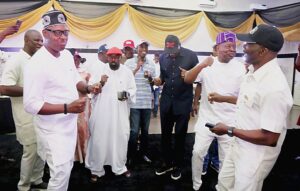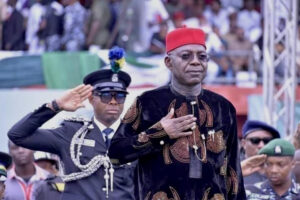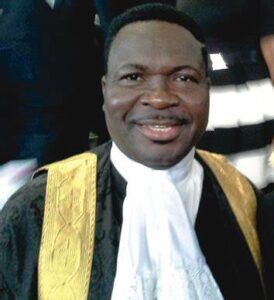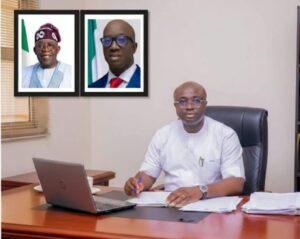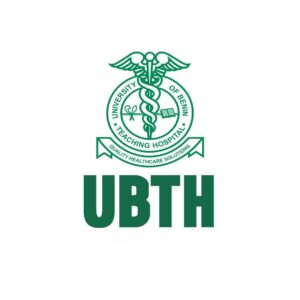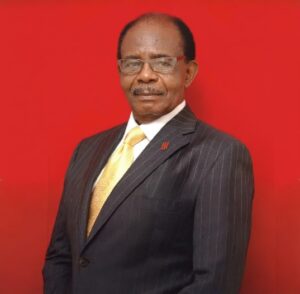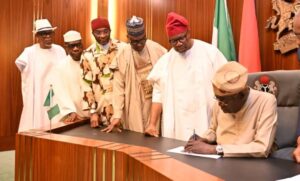Giving Meaning To The Retail End Of The Nigerian Foreign Exchange Market.
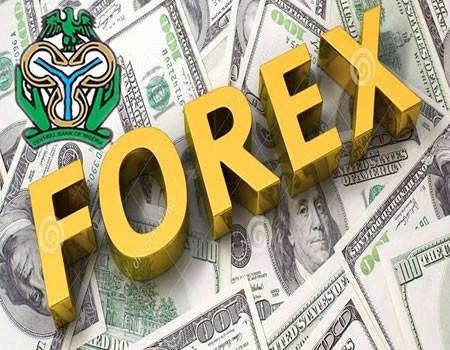
By Victor Ogiemwonyi
marketconversations.substack.com
I had an interview this week, Monday the 25th August on AriseTV “Morning Show”
.
I was asked a question that I was not given the opportunity to explain properly to the listening audience. One of the anchors, Mr Rufai Oseni made a claim that the Central Bank of Nigeria (The CBN) has provided a $4.7b ( actually $4.1b) subsidy in the Nigerian FX market. This is slightly misconceived, because it was not put in the proper context. It then occurred to me that many in the viewing audience will take that wrong information and not understand what that $4.7b represents. It prompted me to write this piece to give a clarification.
The $4.7b is actually the funding of the retail end of the market, which is crucial to price discovery in the Nigerian FX market. Every market has a long tail… the retail end of the market is usually the closest to the consumer.
The Bureau De Change (BDCs) segment, or the organised FX Black Market, that is now what constitutes the retail-end of this market. Called Bureau De Change. Like what the neighbourhood mom and pop store does, for many daily household items. Imagine you want to buy a tin of milk in the morning, you know that it is cheaper in the supermarkets but choose to buy it at the nearby neighbourhood store, even though it is priced higher, your convenience is what matters most at this point. This is why they are sometimes called convenience stores. This is not different in the case of the Nigerian Foreign Exchange Market.
Consumers who want to buy FX for travel, healthcare, school fees and even for small trading needs, are not adverse to paying a little premium. They do not want to go to the Banks, to be asked to, provide documentation and fill out forms. The Bureau De Change segment of the market is the most accessible and for the same reason, the most frequently patronised part of the FX market by users. Despite its small size, it is the most sensitive to price and sets the rate for the entire FX market.
This is what makes this segment most important. So, ignoring it as part of the FX market, will provide a distortion in the actual rate of the Naira. The $4.7b Mr Rufai Oseni is referring to, is mostly what was infused into the market by the CBN and sold to the Bureau de change Operators. The good news, is that they bought at the market price like everyone else. So, to refer to it as a subsidy, was stretching it.
In an article I published in January 2025, titled “Key To Moderating Naira Exchange Rate” …I urged the CBN to allow, to stay, their experiment of selling $25k to the Bureau De Change Operators at the official widow of the FX market, because I thought it was a good strategy, that will ensure FX supply to this very important segment of the market, will moderate the Naira Exchange rate, because we have observed that this end of the market, has the tendency to stoke up prices.
I also called on the CBN to remain consistent and let the market determine the rate at which the Naira should exchange for the Dollar.
They should not be swayed by the pressure of the rising rates for the Naira. I had argued that the price discovery process was the only way to truly determine the Rate of exchange for the Naira.
That was why I told Mr Rufai Oseni at the interview that there was no scientific way to determine the price of the Naira, those who claim to know that the rate should be N1100 or N1200 and not N1500… are all speculating.
There is a worldwide currency market, where currencies are traded everyday, if any one, accurately knows the price of currencies, there will be no market for them.
The Naira raced to N1900 at some point and thankfully, the CBN kept its nerve and did nothing. It became apparent that the distorting price for the Naira was coming from the retail end of the market , sometimes called the “ Black Market”essentially ….the Bureau de change segment, where speculation was also plentiful.
I said, if the CBN should fund this segment of the market, and make it liquid, the speculators will disappear with time. The CBN soon responded, and started to sell FX to the Bureau de change operators at the official market rate. We immediately started to see the Naira rate recede and has now stabilised.
So, the $4.7b Mr. Rufai, referred to as CBN subsidy, to the market actually was what is used to fund the retail end of the market, which is a very important part of the market that determines the rate of exchange for the Naira.
This $4.7b figure, is also very tiny as a percentage of the Nigerian FX market today, it represents, less than 10%. The market is very liquid and accommodates all who want to buy, gone are the days, where large manufacturers who want to buy FX, have to seek preferential allocations. Everyone, can now buy from the market, because there is a market price, everyone knows.
This is not the first time I am advocating for this segment of the market to be funded, to moderate, prices. In 1998, I wrote an article for the Guardian Newspapers, I titled “The quagmire of the Nigerian Foreign Exchange Market “
l had called for, the CBN, to think of funding the Black market, some how, there were no BDCs then, this was when the discussions about Licensing BDCs was going on.
So, my input here is not new.
There was also another aspect of the interview that requires clarification. Mr Ruben Abati also insinuated at the interview that I might be writing these articles because I support the present government and maybe looking for some favours… I support the present government for their economic policies, I can see that they are the right policies and have started to work. But my economic views have remained the same for the last 30years, that I have written for Nigerian Newspapers.
If any one reads my articles in the BusinessDay newspaper, these last several years, that was written under the column heading at the time, “ Economics and Markets” it was so, titled appropriately, to show where my focus is on, you will find that my views are consistent.
I believe in market mechanisms, I believe the tilting to the markets, are the most efficient way to run an economy and know from my understanding of economics, that the price function of the markets are a powerful tool, to correct anomalies in economic policies.
So, his claims that my conclusions in the article under review were “ wonky” can not stand in the face of the known economic parameters, that economists use for measuring an economy’s progress, which everyone knows are the empirical facts he was asking for.
The Nigerian Economy is growing at 3.31%, inflation is trending down, the Naira exchange rate has stabilised, Government revenues are going up, and Balance of payments are positive, even though exports of non oil products, are growing slowly, the fact that the Naira now has a market price, has driven out, speculators, over invoicing manipulators, and the horde of government favoured preferential allotments …this has all contributed to smaller FX outflows and have all eliminated one of the biggest corruption avenues in the Nigerian economy.
I take on board, the genuine complaints about the hardships and suffering of the masses, and I have urged the Government to focus on those areas and provide relief, while the economy stabilizes and grows quickly to really take the majority, out of poverty.
Nigeria is now on the right track, the patience I call for, is only for a little while, we can not expect magic to happen and correct the mis-steps of the many years of delayed reforms.
The Cup is half full.. not half empty.
Victor Ogiemwonyi is a retired Investment Banker and writes from Ikoyi, Lagos.


